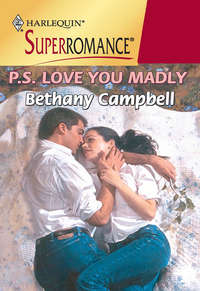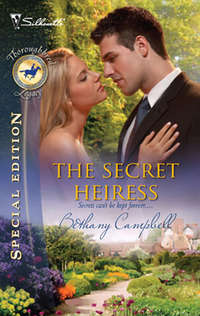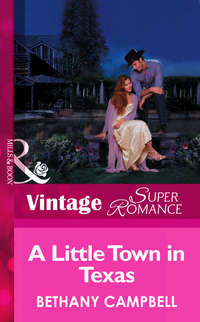
Полная версия
One True Secret

“You know, for a guy who has Emerson Roth exactly where he wants, you’re in a rotten mood.”
Merriman narrowed his eyes as he continued. “You know what I think? I think you’re attracted to her. And you blew your chance with her—big time. Smooth, Garner.”
Merriman’s words annoyed Eli because they were true. Emerson was a beautiful woman. But more than that, she had spirit, she was smart—and loyal to a fault. He didn’t want her to be guilty, but he feared she was.
He wanted her to have a reasonable, moral excuse for the games her family played. He didn’t want her to hate him. But it was too late for that. The damage was done.
Eli was relentless; it went with his job. He could go beyond relentless to ruthless when he had to, and he had been ruthless with Emerson.
She would talk to him again tomorrow, because she had no choice.
And he would show her no mercy, because he couldn’t.
Dear Reader,
People often ask if my characters are based on real people. In One True Secret, the answer is yes and no.
Most of the characters are composites of the real and the imaginary. The heroine, Emerson, owes her beauty and boldness to one of my friends who has the good fortune to have both. But Emerson’s other qualities are drawn from a number of different people, some of them members of my family. And part of her is pure imagination.
Still, I confess that one character is drawn completely from reality. The only thing that is made up about him is his name.
This character is Bunbury, the overweight gray cat who chirps rather than meows. Bunbury is nearly identical to my overweight gray cat, Hodge, who chirps instead of meows. Hodge could sue me for invasion of privacy and libel, but he couldn't care less about being in a book. Outrage, even mild irritation, would be a waste of his preciously hoarded calories.
His passions are (a) eating (b) coveting the food of others and (c) being petted. He hates the vacuum cleaner, all doors that shut him in or out and, most of all, travel.
As this is being written, Hodge is lying on the dog’s cushion, hogging it as he manages to look both sleepy and superior. He will not answer to the name Bunbury, but he won’t answer to the name Hodge, either. He’s a real cat, but he’s also, in every sense of the word, a real character.
Best wishes,
Bethany Campbell and Hodge, a Very Fine Cat Indeed.
Bethany would love you to visit her at her Web site, www.bethanycampbell.com.
One True Secret
Bethany Campbell

www.millsandboon.co.uk
To Wheels and Mrs. Wheels with affection and gratitude.
CONTENTS
CHAPTER ONE
CHAPTER TWO
CHAPTER THREE
CHAPTER FOUR
CHAPTER FIVE
CHAPTER SIX
CHAPTER SEVEN
CHAPTER EIGHT
CHAPTER NINE
CHAPTER TEN
CHAPTER ELEVEN
CHAPTER TWELVE
CHAPTER THIRTEEN
CHAPTER FOURTEEN
CHAPTER FIFTEEN
CHAPTER SIXTEEN
CHAPTER SEVENTEEN
CHAPTER EIGHTEEN
CHAPTER ONE
“I DON’T WANT to talk to those men,” Claire said. She sat under the buttercup tree, glumly feeding almonds to the parrot.
“Then don’t.” Emerson lay stretched on the chaise longue beside the pool. She wore a purple bikini and a green baseball cap. “I’ll do the talking.”
“For them to come barging in this way? I think it’s just—rude.”
“Arrak!” said the parrot. “Rude! Rude!”
“They’re journalists. It’s their job to be rude. Pass me some almonds, will you? I’ve got the munchies.”
Claire rose and handed Emerson the bowl. Then she paused, furrowing her smooth brow. “What’ll you do if they get—you know—too pushy?”
Emerson shrugged disdainfully. “Cut ’em into little pieces and feed ’em to Gollum.”
Gollum was the alligator who lived in the pond on the back of the property, the acres their grandfather kept untouched and wild. Gollum was six feet long and had only one eye. It was yellow and gleamed with malevolence.
“That’s a thought,” Claire said, all seriousness. She moved back to the low stone wall under the yellow blossoms of the tree and sat beside the parrot again, crossing her legs. She put her chin on her fist and stared pensively at her sister. “Aren’t you afraid you’ll say the wrong thing?”
“Nope.” Emerson popped an almond into her mouth.
“Not at all.”
“I’d be,” Claire murmured. “I know I’d say too much. Strangers make me nervous. This whole situation makes me nervous.”
“Yarrk,” croaked the green parrot. “Nervous.” He climbed to a lower branch of the tree and hung upside down, cocking his head from side to side.
Emerson peered over her funky sunglasses to scrutinize Claire. Her younger sister was a pretty girl with a sweet face and a gentle air. The Florida sun had streaked her light-brown hair with gold, and her hazel eyes had a faraway look in them.
Emerson loved her sister, but she worried about her. Claire had always been shy, but lately, Emerson thought, her shyness was overpowering her. Claire went outside the estate as little as possible these days and then only to certain places on the Lower Keys.
She stayed home and saw to the needs of their grandparents, Nana and the Captain. She worked in the garden and walked on the beach and played with her pets.
Claire seemed content with her lot, almost serene. But Emerson didn’t want her to hide away from the world, like the Captain. One recluse in the family was more than enough, thank you very much.
After Emerson had fended off the damn journalists, she needed to get to work on Claire’s social life. That would take some first-class scheming and wheedling. Well, Emerson was up for it.
A fat blue-gray cat with a white belly and paws waddled out of the coleus and began to rub against Claire’s ankles. “Ah,” Claire said with real delight, “it’s Mr. Bunbury. Hello, Bunbury.”
Bunbury flopped onto his back, offering up the considerable expanse of his stomach for petting. Claire rubbed him, ruffled and smoothed him, then lifted him onto her lap and scratched his jowls. The parrot, wary, righted himself and climbed several branches higher in the tree.
Claire looked at Emerson over Bunbury’s ears. “When do you go to New York again?”
Emerson sat up and began to coat herself with a fresh layer of sunscreen. “In ten days.”
“How many paintings will you take?”
“Only the two small ones. I’ll take slides of the rest. See what Krystol thinks.”
“Krystol’s a very good dealer,” Claire said. “But Nana’s worried about him.”
“Why? Because he’s asking questions?” Emerson kept stroking the lotion on her thighs. “It’s all right. I can handle Krystol. I’ve been doing it for years, haven’t I?”
“Yes, but so many people are asking questions,” Claire said, hugging the purring Bunbury. “And now these men—”
Emerson sighed, put the sunscreen aside, and took off her cap. She pulled the pins from her hair, shaking it loose. Unlike Claire, Emerson had dark hair, nearly black, and it was so long it tumbled halfway down her back.
She took off the sunglasses, revealing eyes as dark as her hair. She narrowed these striking eyes at her sister.
“Look, I promised Daddy on his death bed that I’d take care of this family and the business. And I’ve done it.”
“Done it,” echoed the parrot, “Family. Done it.” He shot Bunbury a suspicious glance and edged still higher.
Emerson leaned forward. “And I’ll keep doing it. I know what’s at stake here. These paintings aren’t just paintings. What we have are works of genius. We have a legacy to protect. And I will protect it. So, relax.”
Claire bit her lip, her expression almost rebellious. “But why’d you have to say they could come to Mandevilla? It’s the first time anybody’s been allowed here in years.”
Emerson stood and made a sweeping gesture. She was tall and dramatic-looking, as their grandfather had been, and she could get away with such gestures, just as he had.
Her motion was meant to take in all of Mandevilla, the private beach, the pool and garden, the house itself, and the seven acres of tropical wilderness behind it.
“Mandevilla’s part of the legend,” Emerson said. “The greatest paintings were done here. Famous people came here to visit. Good Lord, Princess Diana came here.”
“That was then, this is now,” Claire said. “Nobody’s come for years.”
Emerson put her hands on her hips. “That’s why it’s important we let somebody see it. To see the place and the new paintings. To stop the damn rumors.”
Bunbury spied a lizard and slipped from Claire’s lap to stalk it in his ponderous way. Claire didn’t try to stop him. Bunbury was too fat and slow to catch anything.
She sighed and picked one of the golden blossoms from the buttercup tree. She twirled its stem between her fingers and stared at it moodily.
“I don’t know. An ordinary magazine would be bad enough. But Mondragon? Mondragon’s very, very classy—”
“That’s why I’m letting them come.” Emerson strolled to the diving board, her hands still poised on her hips. Mondragon, A Magazine of the Arts was sleek, costly and sophisticated. It didn’t shy from controversy or the dark side of the business.
Its managing editor hadn’t made a polite request of Emerson. He’d practically demanded that she allow a writer and photographer to visit Mandevilla.
Agreeing was a gamble, a great one, but Emerson took it because she intended to win. The people from Mondragon would not use her. She would use them.
“They’re classy,” Claire admitted. “But they can be ruthless. And this writer, Eli Garner. They couldn’t send anybody worse. You know what his specialty is.”
Emerson walked to the end of the diving board. She knew, all right. His specialty was investigation—and exposé. He had ruined reputations, lives and fortunes. And a few, a very few times, he had saved them.
“I’m not afraid of him,” she said.
The parrot worked his way down the tree and climbed onto Claire’s shoulder. He rubbed his forehead against her ear. He wanted a kiss.
But for once, Claire ignored him. She stared at Emerson with doubt in her golden-brown eyes. “Maybe you should be afraid, Em. I mean, we do have secrets.”
“I’m not afraid,” Emerson repeated.
“Awrk!” said the parrot. “Secrets!”
But Emerson paid no attention. She made a perfect jackknife dive that plunged her deep into the blue, blue water.
KEY WEST WAS NOT a quiet town. It was charming, it was artsy and hustling at the same time it was eccentric. But it was not quiet. The least quiet part was Duval Street, which was both famous and infamous.
Shops, restaurants, galleries, ice cream stands and antique stores squeezed together on both sides of the street, punctuated occasionally by a porn emporium or a church. Tourists swarmed, mingling with the tanned and laid-back natives.
Street performers performed, beggars begged and occasionally a chicken with gorgeous plumage strolled regally down the sidewalk. Wild chickens were protected in Key West. After dark, the rock and roll blasting out of nightclubs kept them awake, and the roosters crowed all night long.
So Eli Garner considered himself lucky. He’d found that rarest of things on Duval Street, a quiet bar. It was a big, dim, cavernous place, strangely uncrowded, and the only music came from a bearded man on a tiny stage in the corner. He sang mournful folk songs in a mournful voice, and he sang quietly, which was good, because Eli and Merriman could talk.
Eli and Merriman had never before worked together, but Eli had seen the photographer’s work and respected it. The two men had met for the first time a week ago in New York at the offices of Mondragon.
Today they’d joined up at the Miami airport and taken the bumpy and jammed commuter flight into Key West. Eli had come from New York, Merriman from Toronto. As soon as they landed, they’d checked into their hotel on the Atlantic end of Duval and dropped off their luggage. Now, sitting in this dimly lit bar, they had their first chance for a real conversation.
Merriman was a muscular, genial man with deep-set blue eyes and straight blond hair that looked perpetually rumpled. He went only by his last name because, he said, his first and middle names were too horrible to mention. He had the odd habit of wrinkling his forehead when he smiled, which was often.
Eli thought he would like Merriman. His only worry was that maybe the guy was too genial. This gig would be damn tricky. Was Merriman too easygoing to make the best of it?
Eli took a sip of beer and made his voice casual. “So what do you know about Nathan Roth?”
Merriman gave a good-natured shrug. “Just the basics. Giant of the art world. A golden boy in his heyday. Moved here twenty years ago. Lately, he’s gotten reclusive. Hasn’t granted an interview in six years. Or been photographed.”
Eli nodded. A lean, dark man, his face could seem handsome or dangerous, or both at the same time. He could have credibly passed himself off as an aristocrat or as a high-priced hit man.
He tried to pinpoint how much Merriman knew. “For a painter, Roth’s a rich man.”
Merriman licked the foam from his upper lip. “So much for starving artists.”
“Right.” Eli knew Roth’s canvases weren’t selling at the prices they’d once commanded, but they still sold. But for the past six years, speculation and gossip had circulated about both the work and the man.
Eli raised a dark eyebrow. “You know his son was his manager.”
“Till he died. Uh—five years ago.” Then Merriman flashed him an abashed grin. “But look. All I know is what I read last week. Modern art isn’t my thing. I’m an old-fashioned guy. I like pictures of naked ladies.”
Eli’s mouth crooked at one corner. Merriman had photographed a series of paintings celebrating women’s bodies. He’d done a hell of a job, and he obviously loved the subject. The book was called, simply, The Female Nude, and it was equally admired by esteemed scholars and horny teenage boys.
“Roth was an outgoing guy once,” Eli said. “But something happened. We don’t know what.”
“I knew a guy like that once.” Merriman lifted his beer mug, signaling for a refill. “News photographer. Real hell-raiser. One day he ups and goes into a monastery in Tibet. Go figure.”
Eli wouldn’t let the conversation stray. “Roth had a lot of acquaintances. Only one good friend. William Marcuse, another painter. But after Marcuse died, Roth closed himself off to everybody except his family. And they’re loyal to him. Absolutely. They don’t talk, and they don’t want to.”
“A wife and two granddaughters, right?” Merriman accepted a frosted mug of beer and nodded his thanks to the barman.
Eli’s expression grew more intense. “Roth’s son, Damon, handled his father’s business. All of it. And protected his privacy. He was good at it. Since he died, it’s the granddaughters’ job. They’re just as good. Maybe better.”
Merriman cocked his head. “What you’re saying is you want me to be aggressive. But discreetly aggressive.”
“Right. Take all the pictures you can. Don’t be intimidated. Don’t offend them if you can help it, but don’t let them push you around.”
“I take it nobody has to tell you to be aggressive.”
Eli let the remark pass. Anybody who thought the art world was stodgy, highfalutin and boring didn’t know it. He’d uncovered smugglers, forgers, black marketeers, thieves and killers. In his business, he’d dealt with everything from tomb robbers in Yucatán to looters in Baghdad.
He stuck to the subject of the Roths. “I hear the younger granddaughter’s the more pliable. Less worldly. You may be able to work her better than the older one.”
Merriman looked dubious. “Are you saying come on to her? Flirt with her? Me?”
“Whatever.” Eli kept his face and voice impassive.
“These women will pretend to cooperate. We’ve got to get past that.”
“So what’s she like? The younger, pliable, unworldly one? What’s she do?”
“The domestic stuff. She’s the stay-at-home one. The older one handles the business end.”
Merriman smiled, and the lines appeared across his forehead, under a lock of sun-gilded hair. “Oh, yeah. She comes to New York. I hear she’s a looker. What’s her name? Emilene or something?”
Eli’s face grew more guarded than usual. “Emerson. Yeah. She’s a looker.”
He’d seen her once, last year at a gallery opening in Soho. He’d caught only the briefest glimpse. But in that glimpse, Eli had seen she was a true beauty: flowing dark hair, the eyes of a gazelle and the long legs to match. But though she had a gazelle’s grace, the word was that she also had the protective instincts of a lioness when it came to her family.
Almost as soon as he’d spied her that afternoon, she’d left, simply vanished. Later he heard she’d left because of him.
Like her, he had a reputation. When he went after the truth, nothing stopped him, and he had the scars to prove it. If she thought she could keep things hidden from him, she was dead wrong.
“These people don’t live in this town, right?” Merriman asked. “They live on the next key or island or whatever you call these things.”
“Three islands up. Mimosa Key. About fifteen miles away.”
“Pretty isolated?”
“Fairly isolated. Mimosa’s been built up in recent years. But not much. The estate’s on a finger of land that juts away from the main body. No close neighbors. People who’ve seen it say it’s a little bit of paradise.”
Merriman grinned. “If they’re going to team us, this is the right assignment. A little bit of paradise? Couple of women with a rich granddaddy? Beats chasing after criminals and con men. Me, I’m allergic to danger.”
“The only danger is that these women hold us off.” Eli was concerned about this, but not worried. Not deeply.
“The older one? Emerson?” Merriman said.
“What about her?”
Merriman shrugged. “I heard she’s smart, that’s all. And she can be tough.”
“She’s not as smart as she thinks.” Eli finished the last of his beer and he wiped the back of his hand across his mouth.
“And she may be tough. But she’s not tough enough.”
THE NEXT MORNING, Emerson sat in the library, curled up in the ancient velvet armchair, her legs dangling over its arm.
The library was on the second floor of the house, and its large glass doors opened to a balcony that looked out on the ocean. The ocean tossed more than usual today because the wind was high, with long, gray clouds streaking the sky.
Books crammed the teakwood shelves, books of every sort, and they were piled on the desk and floor and on the antique sofa where no one ever sat.
A teak counter ran along the east wall, and the wall above it was covered with framed paintings, wild with color and boldly signed Roth. Beneath the counter were cabinets designed to hold magazines, some decades old.
Magazines were what interested Emerson this morning. A fallen stack of them spilled across the wine-colored ottoman, and others littered the carpet.
The library was Emerson’s favorite part of the house. It had its own fireplace for the rare spell of winter cold, and an old-fashioned ceiling fan to dispel heat. She loved the feel of being surrounded by books yet being only steps away from the sense of space and freedom offered by the balcony.
This room was Claire’s bane, for Claire was neat, and the room defied all her efforts to make it tidy. But Emerson did not mind that the place was a hodgepodge. She found its disorder as comfortable as a pair of old jeans.
A knock sounded at the library door. Emerson looked up from her magazine, her face brightening. She recognized that delicate knock; it was Nana’s.
“Come in,” she called. The door opened, and her grandmother entered.
Lela Roth was a tiny woman, seventy-three years old. Her hair, once ink-black, was now dark gray, and she wore it in one long braid down her back. Her black eyes, large and thickly lashed, were her most striking feature, and Emerson had inherited them.
Lela’s back was still straight, her movements slow but sure. She spoke with an accent, for she had been raised in Paris. Nathan had always teased that he’d kidnapped her from her strict father and made her his child bride. She was ten years younger than her husband.
“I thought I would find you here.” Nana moved to Emerson’s side and kissed her on the cheek. “What are you doing?”
Emerson kissed her back, then waggled her magazine. “My homework.”
“Phaa!” said Nana. “You’re reading things by that man, that Garner person.”
“It’s important to know your enemy.” Emerson rose, gesturing for Nana to take the armchair.
“You do not have much time to learn about him,” Nana said, sitting. “He and the photographe arrive in an hour. Your sister is going crazy.”
Emerson cleared the ottoman and sat by Nana’s feet. “My sister’s an alarmist.”
“I’m a bit alarmed myself.” Nana shook her head.
“You’re sure it’s wise to do this?”
“I’m sure.” Emerson took the toe of her grandmother’s embroidered slipper and squeezed it playfully. “How’s the Captain?”
“As usual,” Nana said with an expressive shrug. “I’ve been sitting with him.”
“How’s the painting going?”
“It goes well, I think.” Nana frowned slightly. She had been a great beauty in her day, and now she was an elderly beauty. Even her frown was becoming. It had style.
She tilted her head and gave Emerson a stern look. “But you’re changing the subject on me. This man, Garner. This is how you get ready for him? Only looking at magazines? Again?”
“By their works ye shall know them.”
Nana tapped her foot scornfully on a copy of Mondragon. “He is like le requin. The shark. From a distance I admire his strength. But close I do not want to see him. I do not want his sharp teeth going snap-snap at me and my family.”
Emerson took her grandmother’s gnarled hand gently between her own. Age had been kind to the older woman except for her hands. Arthritis had swollen and bent her fingers. “Nana, Mondragon gave us a choice. They’ll do the story with our cooperation. Or without it. We have far more control if we cooperate. Or seem to.”
Nana tapped a forefinger to her temple. “This Garner man, he is smart. I have read him. And he is hard. He has moved among criminals, masters of deception. You truly think you are his equal?”
Emerson smiled. “Why shouldn’t I be? I have the Captain’s blood in my veins. And yours, too.”
Slowly, the older woman smiled back. She reached out and smoothed Emerson’s long hair. “Ahh. Yes. But be careful. I have seen his picture. He is handsome. That is another weapon. He will not be above using it. Apel du sex.”
“Sex appeal?” Emerson’s eyes lit with mischief. “Two can play that game.”
Nana threw her head back and laughed. Then she grew serious. She gave Emerson a critical look. “You’re not wearing that, are you?”
Emerson wore very short red shorts and a white T-shirt without a bra beneath. “No. I thought the little white sun dress. With the low neck.”
Nana’s scowl was elegant in its disdain. She waved her hand in admonition. “Non, non, non. So obvious! Be subtle. The blue caftan. With the sleeves that flow. Cover yourself. It is much more provocative. Shouldn’t I know?”
With that, she got up and walked toward the door.
Emerson frowned. “I can’t. The caftan has a spot on it.” It did, a small but dark stain on the bosom.
“All the better,” Nana said loftily. “It will look less studied.”







